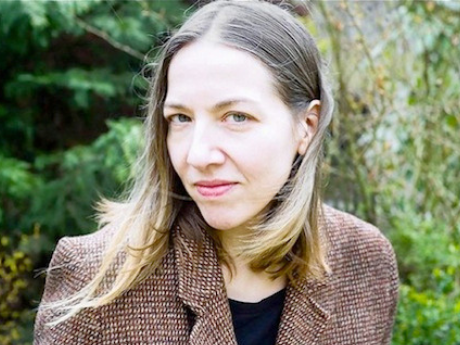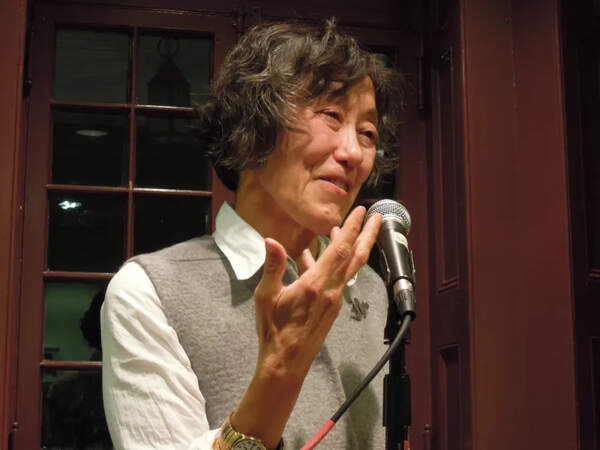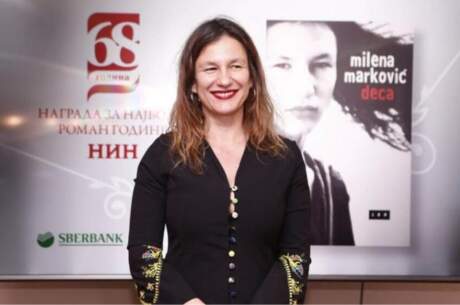Interviews
Poet Novelist: An Interview with Rebecca Wolff

Rebecca Wolff is the author of three poetry collections and the founding editor of Fence and Fence Books. In 2011, her first novel, The Beginners, was released by Riverhead Books. The Poetry Society asked her about her experience as a poet writing a novel.
* * *
How did it happen that you came to write this novel? Did you forget for a moment that you were a poet? Were you challenging yourself? Or did the muse just tell you to do it?
I began writing this novel when I was granted a long (8 week) residency at a colony. I just knew I wouldn't be able to fill my days with poems—I'm not that kind of poet—and I'd had a strong idea for the novel a few months before, and taken lots of notes, and the ideas just kept on coming, and so I thought it would be the perfect time for it. I wrote about 150 pages of what was then called Unspeakable Evil (yes!) during those weeks (and also wrote poems, and revised some, etc). The short answer would be Yes, the muse just told me to do it, and then the colony allowed me to follow the muse's instruction.
Your protagonist, Ginger, has a voracious appetite for reading. Is this autobiographical—did you plunder the local library as a teenager? What did you like to read then, and how does it differ from what you like to read now? I guess I'm also wondering--when did you start reading poetry (assuming you do)?
It is completely autobiographical. As children and teenagers in the summertime my brother and I would be driven to the library every few days to load up with a stack of books. We'd often just sit in the car reading after we got home. We were totally submersive, could not be spoken to when reading. Or at least would not hear. Like Ginger, I was broad-minded, and read everything from "Cherry Ames, Student Nurse" to Hollywood biographies (Tallulah Bankhead, Lauren Bacall) to Anais Nin and Evelyn Waugh and Gail Godwin to Any Minute I Can Split by Judith Rossner. Tons of trash. Jeeves. Norman Mailer. Soft-core porn. Memorably I found Lolita when I was about 13, and read it probably a half-dozen times in one year. No nonfiction, however. My reading now is, come to think of it, unchanged. I vacillate between novels and biographies, with some memoir thrown in here and there. I like to read social farce; I like to read literary biographies. I first read poetry as a teenager: Marge Piercy was my introduction. I moved on to the Plath-Sexton axis pretty quickly, and then my life changed when I picked up a volume of Clark Coolidge at the original Barnes & Noble on 17th Street when I was 17, on my way to college, almost literally. I brought The Crystal Text with me to my freshman dorm room.
I think most readers would agree that your mode of storytelling—in which incidents are sometimes related only partially and at other times with elaborate thoroughness, the narrative logic of a dream meeting reality's abundance of detail on a lyric middle ground—is very poetic. Did you have a sense that you were consciously trying to make the form more poetic, to experiment with style? Or was this a natural mode of storytelling for you?
Thank you for describing it so nicely! I'm afraid this came naturally to me—it's not that different really from my compositional method for poems, wherein I am mostly a collagist, though this is not always evident in the eventual poem. I guess you could say that for this novel I collaged modes of the narrator's consciousness? I have a line (or lines) in a poem that says "I was born with a yellow brain/ and cannot make up stories," and I think this mode is a defensive one, in that it allows me, a person who truly is not given to much linear thinking, to place things together along a line, the implicit time-line of a story. Interestingly I do NOT have the chops to do this intentionally, to meddle with time in a skillful way, as say Jennifer Egan does in A Visit from the Goon Squad (amazing book). I more have to splat time at the wall and hope it sticks. I think this is why I will never be a novelist in the experimental vein: because I am more invested in applying myself to the fruitful limitations of narrative, as I perceive them, than exploding or innovating.
The obvious question, but one that holds a certain fascination for poets: how did you think the process of writing a novel differed from the process of writing poetry?
Oh it differed in every way you can think of, except for me perhaps the one I mention just above (the composition). Sustaining characters, creating psychological reality for them, making them do things that move the story along (as I felt I must), perceiving the reader's needs as almost paramount to my own needs! You could say that novelists are like parents, in this way, while being a poet is like more like being an id. Novelist is to Poet as Parent is to Id. This makes no sense, but I think it's right on. If you think too much about your reader's needs as a poet, you're dead in the water (as one of my characters possibly is at the end of the novel).
Will you write another?
Yes! It's called The Truth. As soon as I start writing it, anyway.


